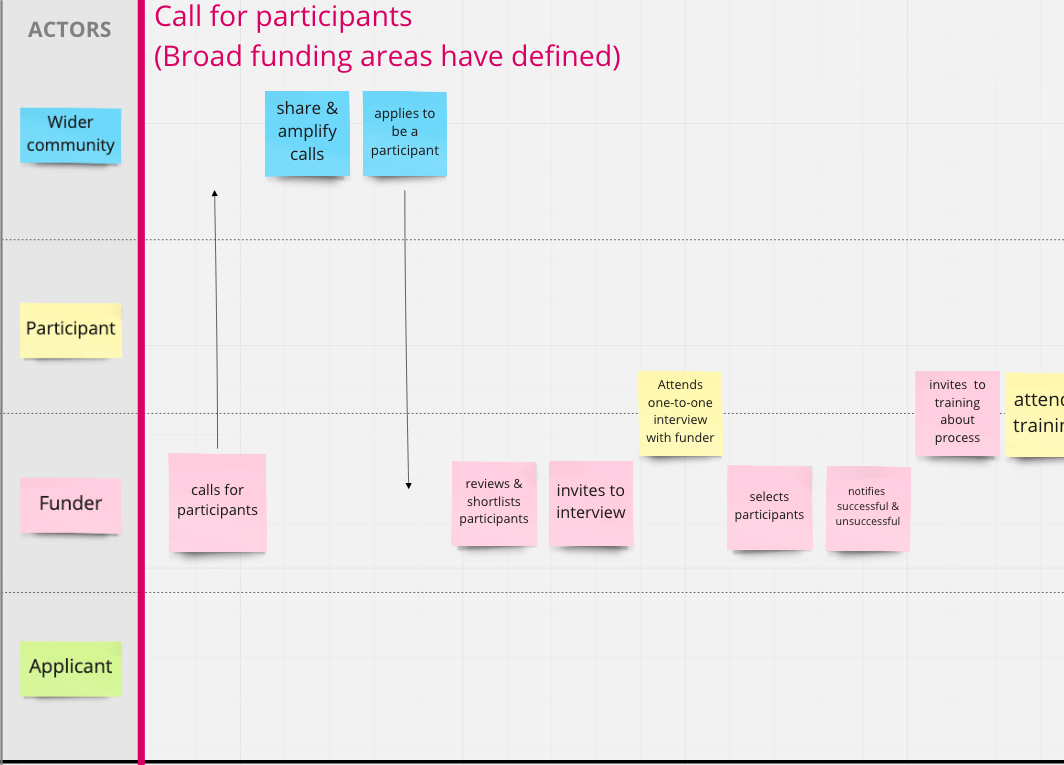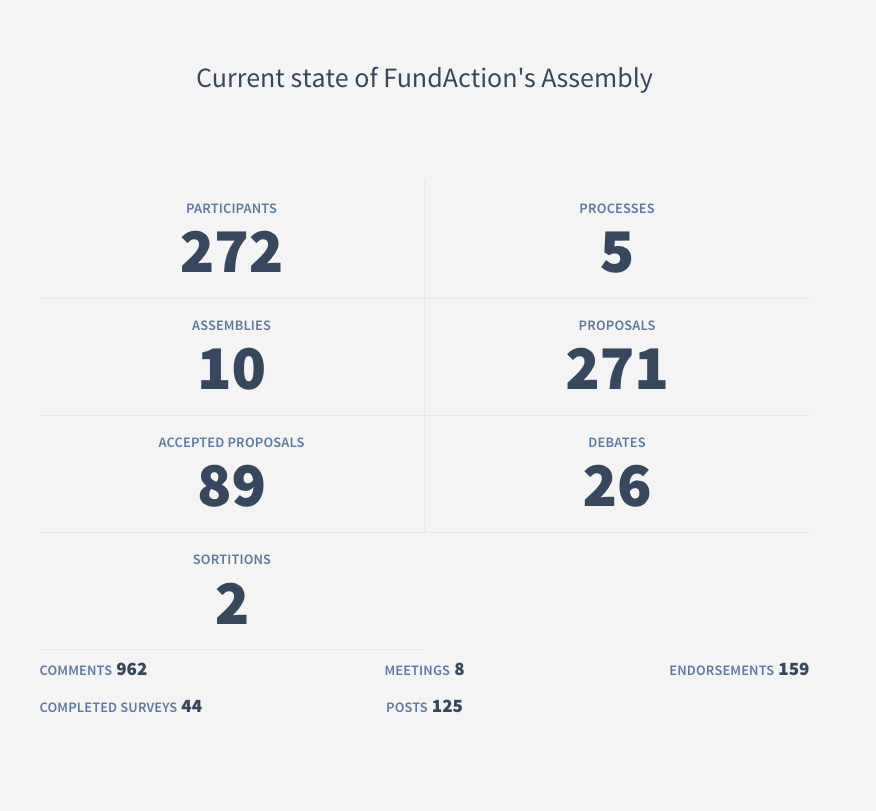Week 4 - Continuing interviews
We’re exploring the question: How might tech support communities to carry out collective decision-making and collective design?
Short version:
- Interviewed Rose (FundAction), Louis & Emmott (FoodHall), Matt (Carbon Co-op), Simon (Chorlton Community Land Trust & Stretford Public Hall) and Isis (Edge Fund) 😅
- Began creating a journey map of how a funder might test out Participatory Grant-Making 🗺️
Next week: Synthesising findings - What have we learnt about collective-decision making from the groups we’ve spoken to? What interesting uses of tech have we seen?
Longer Medium version:
Slightly shorter weeknote today as we’ve been back to back doing interviews and we haven’t yet started synthesising the findings.
That said, a couple of things have popped out that are worth sharing already…
Began creating a journey map of how a funder might test PGM
Using what we heard from Samuel at The Other Foundation and Khadra about Camden Giving, we’ve started to create a sort of representative journey map. This isn’t exactly how either organisation does it, it’s a kind of idealised hybrid.
We hope an existing traditional funder could look at this map and start to see how they might be able to test out a participatory model. You can take a look at it in Miro.

Discovered a different approach to PGM
Then we spoke to Rose from FundAction.
We’ll write up how this works in more detail, but here are some initial notes:
They’re a private member group of equal peers - this felt very different from a fund with staff and “panelists”.
They’re created an “Assembly” website. It supports members to debate ideas, make proposals and find out when meetings are happening. They’re using a customised version of Decidim. It feels interesting how it’s making the process more transparent.

A dashboard of sorts on FundAction’s Assembly website
(This feels very different from excel spreadsheets and packs of applications being emailed around and Zoom meetings.)
Members appear to have a very high level of “democratic literacy” with lots of members having informed opinions on different types of decision making, voting, organising. That’s a real strength for the community, but does that make it difficult to replicate?
But is that level of democratic literacy actually necessary? What might happen if some of the ways in which FundAction operates were codified in tech? Could this be transported into a local community setting in, say, Brinnington? Could a well trained facilitator enable the same quality of collective decision-making in that setting?
FundAction is completely different
We spoke to FundAction soon after working on the idealised journey map. They didn’t fit on the map - their approach looks completely different.
Rather than a funder taking a different approach to deciding which projects to fund, here a group of activists, change-makers and funders came together to design an intersectional fund from scratch.
Looking again at the journey map, it’s striking how much it resembles a ‘traditional’ funding approach, modified to invite participants into the decision-making stage.
To be clear, we think Camden Giving and The Other Foundation are inspirational. We don’t have a view on the relative merits of the two models, it’s just to point out that they’re completely different.
The next few weeks…
Doing these interviews was awesome and also exhausting!
We’ve got rough transcripts which we need to improve (for most interviews we recorded the Zoom call and promised to delete recordings after 14 days.). Once that’s done we need to spend the time going back over the material, highlighting areas we found striking, discussing, and look for areas that inspire ideas for prototyping.
THEN hopefully the fun begins and we get to start sketching. These will be at all different levels of detail and scope. They’ll start off rough and ready, probably a mix of silly and serious. As makers by profession we always want to jump to this bit.
